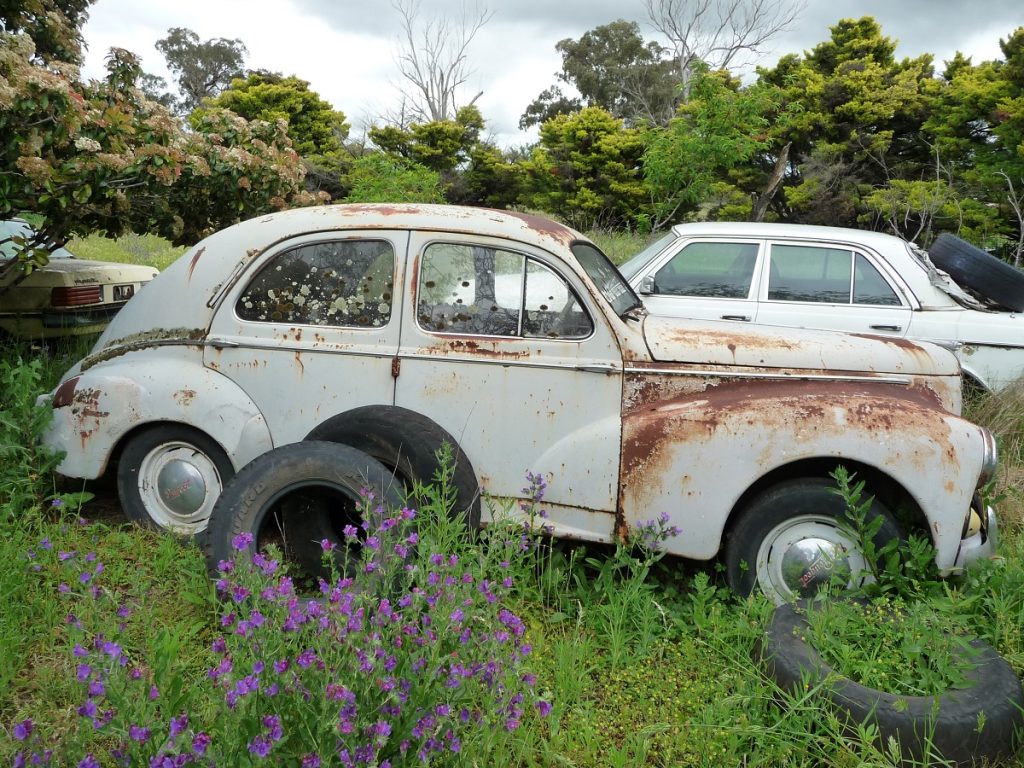In the 1970s, within a few years of arriving in France, our group bought a little car, a secondhand Peugeot. We went all over Europe in it and used the car to transport not only people but also sand, bricks, tools, books, food, and many other materials as we began to establish the Sweet Potato community in an old farmhouse outside Paris. We used it for all our needs and kept it for many years. When our car was old and couldn’t be used anymore, we had a difficult time letting it go. We were attached to our little Peugeot, because both we and the car had gone through so much together. The car had survived breakdowns, numerous accidents, and untold repairs. My friends and I were sad the night we had to abandon it.
I do not know if people develop such a deep connection to the things they buy these days. Many people have a strong desire to possess the latest thing, and manufacturers and advertisers know this. It is not by accident that merchandise these days is not created to last.
The objects of our desire are constantly changing. And our desires for the objects we consume also change from one moment to the next. We are always running after something new. We may be infatuated with what we’ve bought for a while, but soon we take it for granted, we get bored, throw it away, and then buy something else.
As you grow in mindfulness, you reclaim your life. You begin to see how much time we lose in empty, meaningless consumption. Looking deeply, we see that empty consumption brings us no lasting happiness, only suffering.
♦
Excerpted from At Home In the World by Thich Nhat Hanh © 2016. Reprinted with permission of Parallax Press.
[This story was first published in 2016]
Thank you for subscribing to Tricycle! As a nonprofit, we depend on readers like you to keep Buddhist teachings and practices widely available.
